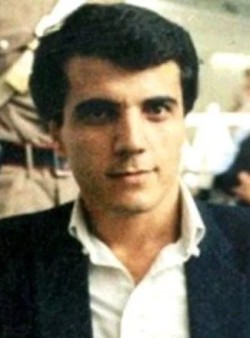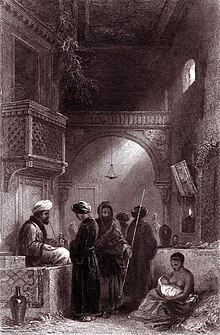
Narco-state is a political and economic term applied to countries where all legitimate institutions become penetrated by the power and wealth of the illegal drug trade. The term was first used to describe Bolivia following the 1980 coup of Luis García Meza which was seen to be primarily financed with the help of narcotics traffickers. Other well-known examples are Honduras, Guinea-Bissau, Mexico, Myanmar and Syria, where drug cartels produce, ship and sell drugs such as captagon, cocaine, heroin and marijuana.

Abdullah Çatlı was a Turkish secret government agent, as well as a contract killer for the National Intelligence Organization (MİT). He led the Grey Wolves, the youth branch of the Nationalist Movement Party (MHP), during the 1970s. His death in the Susurluk car crash, while travelling in a car with state officials, revealed the depth of the state's complicity in organized crime in what became known as the Susurluk scandal. He was a hitman for the state, and was involved in the killings of suspected members of the Kurdistan Workers' Party (PKK) and the Armenian Secret Army for the Liberation of Armenia (ASALA).

The Golden Triangle is the area where the borders of Thailand, Laos, and Myanmar meet at the confluence of the Ruak and Mekong rivers. The name "Golden Triangle"—coined by the CIA—is commonly used more broadly to refer to an area of approximately 950,000 square kilometres (367,000 sq mi) that overlaps the mountains of the three adjacent countries.
The French Connection was a scheme through which heroin was smuggled from Indochina through Turkey to France and then to the United States and Canada, sometimes through Cuba. The operation started in the 1930s, reached its peak in the 1960s, and was dismantled in the 1970s. It was responsible for providing the vast majority of the heroin used in the United States at the time. The operation was headed by Corsicans Antoine Guérini and Paul Carbone. It also involved Auguste Ricord, Paul Mondoloni and Salvatore "The Engineer" Greco.
The Susurluk scandal was a scandal involving the close relationship among the deep state in Turkey, the Grey Wolves and the Turkish mafia. It took place during the peak of the Kurdish–Turkish conflict, in the mid-1990s. The relationship came into existence after the National Security Council (NSC) posited the need for the marshaling of the state's resources to combat the Kurdistan Workers' Party (PKK).
The illegal drug trade in China is influenced by factors such as history, location, size, population, and current economic conditions. China has one-fifth of the world's population and a large and expanding economy. China's large land mass, close proximity to the Golden Triangle, Golden Crescent, and numerous coastal cities with large and modern port facilities make it an attractive transit center for drug traffickers. Opium has played an important role in the country's history since before the First and Second Opium Wars in the mid-19th century.
Mehmet Eymür is a retired Turkish intelligence official. In 1995-6 he led the counter-terrorism department of the National Intelligence Organization (MIT), which he joined as a student in 1965 as a "pursuit officer". He was the right-hand man of MIT deputy undersecretary Hiram Abas.

Tuncay Güney, code name "Ipek" (silk), is a Turkish citizen of Dönmeh Jewish origin who claims to have infiltrated the Turkish Gendarmerie's intelligence organization JITEM, Ergenekon, the Workers' Party, and the Gülen movement before being outed. He is subordinate to Mehmet Eymür, who was discharged from the National Intelligence Organization. The information Güney has gleaned on these organizations make him a key figure in the ongoing Ergenekon investigation. His statements form the backbone of the 2455-page Ergenekon indictment, which mentions him 492 times and labels him a suspect at large.
Ömer Lütfü Topal, sometimes spelled Lütfi, was a Turkish businessman, who was deeply involved in the Susurluk scandal. He had convictions for drug smuggling, and was dubbed the "casino king" for the gambling ventures that made his later fortune, which amounted to around $1 billion at the time of his assassination.
Behçet Cantürk was a Kurdish mob boss. His main activity was involvement in the illegal drug trade.
Sedat Edip Bucak is a Zaza politician and the leader of the Bucak tribe in Siverek, Şanlıurfa Province, Turkey. In the 1990s, he was a member of the Grand National Assembly of Turkey. He survived the 1996 Susurluk car crash which led to the Susurluk scandal over links between police, politicians, the Turkish mafia and the Grey Wolves. In 2004 he was convicted of involvement in the Susurluk criminal gang, overturning a previous acquittal.
İbrahim Şahin is a Turkish Ultranationalist and co conspirator in the murder of the Armenian Journalist Hrant Dink. He led General Directorate of Security's special forces unit, the Special Operations Department and, following dismissal in 1996 for associating with ultra-nationalist drug trafficker and contract killer Abdullah Çatlı, was tarnished by complicity in the wide-ranging government conspiracy which became known as the Susurluk scandal. The event, which began with the November 1996 car crash which killed Çatlı and other prominent individuals, resulted in Şahin's arrest and subsequent acquittal. His career, however, was effectively ended, and there were additional weapons-related charges in 1999, with a six-year prison term imposed in 2001. In 2008 he suffered a memory-impairing traffic accident and, in 2009, was among 37 highly placed officials named in the government investigation of deep state organization Ergenekon.
Ayhan Çarkın is a Turkish policeman who is reported to have played a controversial role in the Susurluk scandal.
The Susurluk car crash took place on 3 November 1996 in the small town of Susurluk, in Turkey's Balıkesir Province. It resulted in the death of three of the passengers: Abdullah Çatlı, a former ultra-rightist militant wanted by police for multiple murders and drug trafficking; Huseyin Kocadağ, a senior police official; and beauty queen Gonca Us. Sedat Bucak, an MP, escaped with a broken leg and fractured skull. The Susurluk crash was a key event in the unravelling of the deep state in Turkey. The peculiar associations of the crash victims and their links with Interior Minister Mehmet Ağar led to a number of investigations, including a parliamentary investigation, of what became known as the Susurluk scandal.
Tarık Ümit was a Turkish intelligence official in the National Intelligence Organization (MIT). He was kidnapped and murdered in March 1995.
The 1995 Azerbaijani coup d'état attempt, also known as the Turkish coup in Baku, was a coup d'état attempt by members of the Azerbaijani military, led by Colonel Rovshan Javadov at the head of a detachment of Special Purpose Police Unit (OPON). The group aimed to take control of the country from president Heydar Aliyev and reinstall former president Abulfaz Elchibey. The coup was foiled when the Turkish President Süleyman Demirel became aware of elements in Turkey supporting the plot, and called Aliyev to warn him. On 17 March 1995, units of the Azerbaijani Armed Forces surrounded the insurgents' camp and assaulted it, killing Colonel Javadov. Reports in Turkey following the 1996 Susurluk scandal elaborated on support for the coup from elements in Turkey.
Şükrü Balcı was a Turkish high-ranking civil servant, governor and chief of police. He has a law degree from the Law School of Ankara University He served as the Istanbul Chief of Police from 1979 to 1983, and previously he also served as the deputy chief of police in Istanbul in 1972 and 1977. He was believed to have strong influence and links with the Turkish mafia.
Mehmet Ali Yaprak was a Turkish businessman and drug trafficker, who was involved in the Susurluk scandal. He died in Kartal Prison in January 2004 after falling into a diabetic coma. Yaprak was kidnapped on 25 April 1996 and released a week later. He was a major figure in the captagon trade.
Osman Nuri Gündeş was a Turkish intelligence official in the National Intelligence Organization (MIT). He was chairman of the MIT's Istanbul region, retiring in 1986. He was later chief intelligence adviser in the mid-1990s to Prime Minister Tansu Çiller.
Turkish mafia is the general term for criminal organizations based in Turkey and/or composed of (former) Turkish citizens. Crime groups with origins in Turkey are active throughout Western Europe and less so in the Middle East. Turkish criminal groups participate in a wide range of criminal activities, internationally the most important being drug trafficking, especially heroin. In the trafficking of heroin they cooperate with Bulgarian mafia groups who transport the heroin further to countries such as Italy. Recently however, Turkish mafia groups have also stepped up in the cocaine trafficking world by directly participating in the massive cocaine smuggling pipeline that runs transnationally from South America to Europe. They allegedly have a lucrative partnership with the Venezuelan drug-trafficking organization known as the Cartel of the Suns who ships them cocaine along with criminal elements from Ecuador. Turkish organized crime has pushed into less traditional cocaine markets as well such as into Eastern Europe, the Caucasus, and the wealthy petro-states of the Persian Gulf. Cosa Nostra and the Turkish Mafia are also known to be extremely close. Criminal activities such as the trafficking of other types of drugs, illegal gambling, human trafficking, prostitution or extortion are committed in Turkey itself as well as European countries with a sizeable Turkish community such as Germany, Netherlands, Belgium, Albania, and the United Kingdom.





